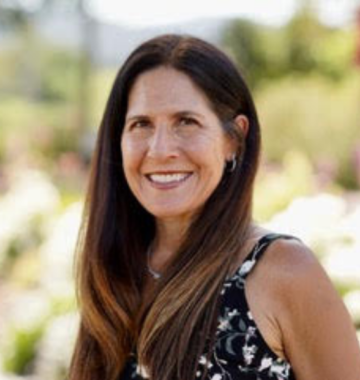
Michelle Moskowitz
Government Relations Advisor
Bio
Michelle Moskowitz has 25 years of experience in government relations, public policy, advocacy, and project management. Her career as Director of Advocacy and Institutional Relations at UC Berkeley, is at the nexus of advancing scientific research, new technologies, and public policies that improve society. She joined Cruz Foam as Government Relations Advisor in 2019.
Within UC Berkeley’s Office of Government & Community Relations, Michelle facilitates engagement among world-renowned scientists, subject-matter experts, state and federal policy-makers, and industry leaders, on topics including green chemistry, synthetic biology, advanced biofuels, green buildings, and unmanned aerial systems. Michelle has successfully garnered support for society-scale solutions, bringing them to government officials and third party advocates.
Michelle’s professional networks span California, the United States and the world. Her outcomes rely upon strategic relationships and building coalitions with business, national labs, higher education associations, and government entities. She now also brings her expertise to the area of sustainable packaging and the compostable polystyrene replacement, developed by Cruz Foam. Michelle is passionate about fostering new public policy pathways to advance the circular economy, particularly related to protective packaging, waste management, and sustainability. She is interested in facilitating a transition to green manufacturing jobs, and re-imagining waste management systems to enable the disposal of sustainable packaging, with a post-consumer-life market value.
Why do you want to serve on the Executive Committee?
ASTM D6400 certified, truly compostable packaging foam, such as Cruz Foam, is positioned to enhance an existing multi-trillion dollar global market –that of protective packaging. The opportunity is thrilling. However, Cruz Foam will go even further. Cruz Foam intends to be an innovator with regard to waste management. We intend to open up opportunities for bio-benign, organic waste innovations in protective packaging. How, where, when and by whom, Cruz Foam is disposed of and composted, at its post-consumer “end-of-life,” will require surmounting existing practices and norms and trailblazing new pathways in sustainability. Such transformation relies upon the value-chain of stakeholders to form coalitions committed to the circular economy, and to the creation of a waste infrastructure that accepts organic non-foodware packaging. An organization of leaders across the spectrum of beneficiaries–the executive committee of the SPC– can facilitate such a transition. My interest in serving on the Executive Committee is to help educate, advocate, learn, enable and lead this transition, based on the latest innovations in the sustainable packaging space.
What do you think you would contribute as an Executive Committee representative?
Legislative and regulatory changes– local, state-wide, federal and global–are required to drive successful, full-circle sustainable packaging companies and solutions. From my 25 years of government relations work, I am able to contribute an understanding of the legislative and political processes and landscapes that influence policy-makers and policy. I have experience in bringing science-based policy ideas and solutions to policy-makers. I will also contribute my extensive networks and relationships with local, state and federal lawmakers, along with experience in building broad coalitions of interests to advocate for policies that benefit society, the environment, public health as well as create new green jobs.

